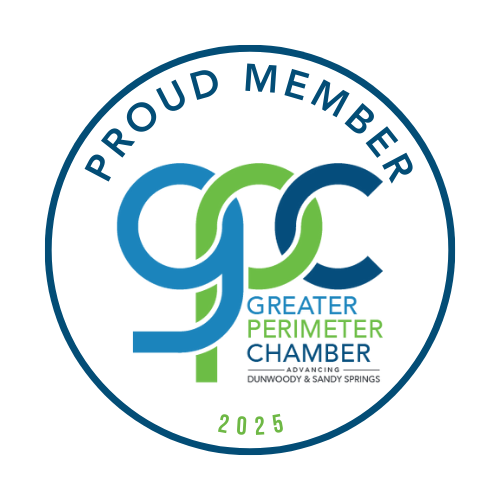Breaking Free: A Comprehensive Guide to Treating Fentanyl Addiction
Fentanyl, a powerful synthetic opioid, has become a growing concern in recent years due to its highly addictive nature and devastating impact on individuals and communities. Understanding the complexities of fentanyl addiction is crucial to providing effective treatment and support. Fentanyl addiction occurs when an individual becomes physically and psychologically dependent on the drug. This addiction can develop as a result of recreational use, misuse of prescription medication, or unknowingly consuming counterfeit drugs laced with fentanyl.
ARP is a Georgia drug and alcohol rehab that offers quality fentanyl addiction treatment options. Contact us today to learn more.
The Dangers of Fentanyl Addiction
Fentanyl addiction poses significant risks to a person’s physical and mental health. Being one of the most potent opioids available, fentanyl can quickly lead to overdose and death. Its potency also makes it challenging to dose accurately, increasing the risk of accidental overdose. The respiratory depression caused by fentanyl can be life-threatening, as it can cause breathing to slow down or stop altogether. Furthermore, prolonged use of fentanyl can lead to severe withdrawal symptoms, making it incredibly difficult for individuals to quit without professional help.
Signs and Symptoms of Fentanyl Addiction
Recognizing the signs and symptoms of fentanyl addiction is crucial to intervene and provide support to those in need. Physical symptoms may include constricted pupils, drowsiness, slowed breathing, and gastrointestinal issues. Psychological signs can manifest as mood swings, anxiety, depression, and impaired decision-making. Social indicators may include social isolation, neglect of responsibilities, and strained relationships. If you or someone you know is exhibiting these signs, it is essential to seek professional help immediately.
Treatment Options for Fentanyl Addiction
When treating fentanyl addiction, a comprehensive approach addressing both the physical and psychological aspects of addiction is essential. The journey to recovery often begins with detoxification and withdrawal management.
Detoxification and Withdrawal Management
Detoxification is the process of removing all traces of fentanyl from the body. It is crucial to undergo this process under medical supervision to ensure safety and minimize withdrawal symptoms. Professional detox programs provide a structured environment where individuals can receive appropriate medical care and support throughout withdrawal. Withdrawal symptoms from fentanyl can be intense and uncomfortable, including nausea, vomiting, muscle aches, insomnia, and anxiety. Medical professionals can help manage these symptoms and ensure safe and comfortable detoxification.
Medication-Assisted Treatment for Fentanyl Addiction
Medication-assisted treatment (MAT) has proven highly effective in treating fentanyl addiction. MAT combines medications, such as buprenorphine or methadone, with counseling and behavioral therapies. These medications help to reduce cravings and withdrawal symptoms, allowing individuals to focus on their recovery. MAT programs are tailored to each person’s unique needs, ensuring the most appropriate medication and dosage are used. It is important to note that MAT should always be administered under the supervision of qualified healthcare professionals.
Behavioral Therapies for Fentanyl Addiction
Behavioral therapies are crucial in treating fentanyl addiction by addressing the psychological and behavioral aspects. Cognitive-behavioral therapy (CBT) is often used to help individuals identify and change negative thought patterns and behaviors associated with drug use. This therapy can assist in developing coping strategies, stress management techniques, and relapse prevention skills. Additionally, the treatment plan can incorporate contingency management therapy, motivational interviewing, and family therapy to provide comprehensive support.
Support Groups and Counseling for Fentanyl Addiction
Support groups and counseling can provide invaluable support and encouragement throughout recovery. Group therapy allows individuals to connect with others who have similar experiences, fostering a sense of community and understanding. Narcotics Anonymous (NA) and other 12-step programs are popular support group options for individuals recovering from fentanyl addiction. Individual counseling provides a safe space to explore underlying issues, develop relapse prevention strategies, and work through personal challenges. Combining support groups and counseling can significantly enhance the chances of long-term recovery.
Aftercare and Relapse Prevention Strategies
After completing a treatment program, the journey to recovery continues through aftercare and relapse prevention strategies. Aftercare refers to the ongoing support and resources available to individuals to maintain sobriety and prevent relapse. This may involve regular check-ins with a counselor or participation in sober living communities. Developing healthy coping mechanisms, engaging in regular physical activity, and practicing self-care are essential for long-term recovery. Relapse prevention strategies, such as creating a relapse prevention plan and identifying triggers, can help individuals navigate challenging situations and maintain sobriety.
Seeking Help for Fentanyl Addiction
If you or someone you know is struggling with fentanyl addiction, it is crucial to seek help promptly. Atlanta Recovery Place is an outpatient drug rehab in Georgia that provides holistic treatment methods to help clients battle multiple forms of addiction. Their comprehensive approach, combining evidence-based therapies with compassionate care, ensures individuals receive the support they need to break free from fentanyl addiction. Remember, reaching out for help is a courageous step towards a healthier and happier life.
Atlanta Recovery Place is here to provide compassionate and effective treatment to help individuals break free from addiction. Remember, recovery is possible, and a brighter future awaits.









